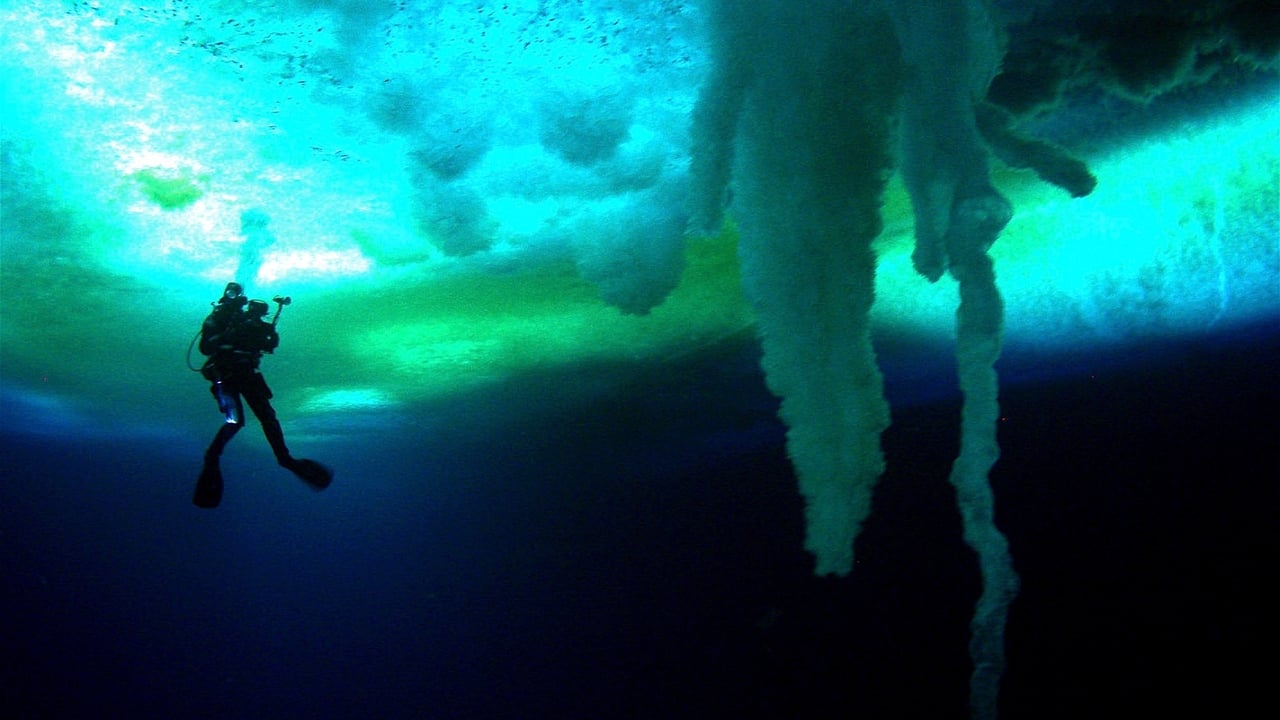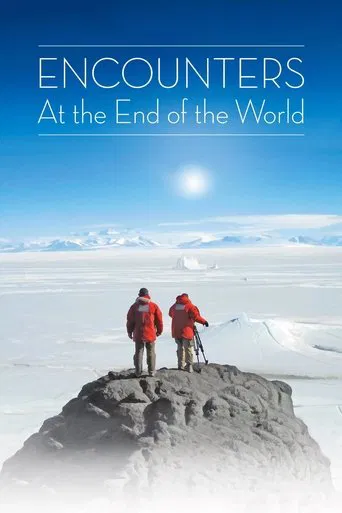

Brilliant and touching
... View MoreAwesome Movie
... View MoreA Major Disappointment
... View MoreThere is, somehow, an interesting story here, as well as some good acting. There are also some good scenes
... View MoreWerner Herzog's documentary studies a community of North American scientists in Antarctica. Investigating the origins of early life, icebergs, neutrinos and the mysterious ways of penguins, nothing that is prodded, poked, scrutinised or measured is as bizarre as the people doing the 'work'. The film includes early footage of Scott and Shackleton's doomed expedition and is itself a masterclass in unfussy documentary making. Using classic observational footage it transcends the largely prosaic reality it documents and becomes a haunting reflection on men's insatiable and destructive desire for conquest.
... View MoreThis was a terrible documentary about a wonderful thing. The beauty and mystery of everything in the film is worthy of a much better filmmaker. In one sitting, he merges information about volcanos, neutrinos, and penguins. It's very disjointed. He excites us with philosophical questions, then switches the subject entirely. It's like a film school student was trying to make something edgy, but his professor never got to edit it before they published it. I had to mute the Gothic music he decided to play over the clips of diving under the iceberg. I wanted to feel the solemn silence that scientists must feel down there. I wanted to let my mind run where it may, but instead I kept having to think to myself "Why is there a man yodeling?" (his choice of soundtrack anytime anything of interest was on screen). When he was interviewing scientists who were talking about their passion, you could feel their excitement as they spoke. But Werner insisted on constantly panning in on them, taking away any hope of subtlety. He featured pointless interviews with bus drivers that I expected to have lead up to the reason why they had found themselves in Antarctica, but didn't. The whole time I thought it would eventually tie up together at the end, but that never happened and I was extremely disappointed with the entire thing.
... View MoreCinematographer: Peter Zeitlinger Dedicated to late Roger Ebert, Encounters at the End of the World is another avant-garde documentary piece by Hergoz. Along with his cameraman (Zeitlinger), this time he ventures to southmost point of the planet—Antarctica, South Pole.Ebert is clearly all enamored by the film, praising it highly, and rightly so.Hergoz's largely extempore interviews with scientist and travelers in various Antarctican base camps form the base material of the film. He eventually uses these casual interactions to explicate an underlying script for the film.The footage beautifully captures the exotic Antarctica—loony penguins running wild, astounding seal-calls, luminescent jelly fish, under-surface tunnel leading right below the South Pole—leaving you simply bewitched. Mesmerizing underwater footage gives you a feel of the nether regions. Personally, I would have preferred the dead-silence of the sea bottom. However, realizing that the silent period would be little too long, Hergoz substituted it with cathedral-like music.Making this film seem so natural was no mean feat, and wouldn't have been possible for any other, even capable, director. Due to his reputation, Hergoz was allowed exclusive access to some publicly inaccessible areas and personnel. An excerpt from film Wikipedia page: "The film was shot in Antarctica as part of the National Science Foundation's Antarctic Artists and Writers Program. The entire film crew consisted of Herzog, who recorded all production sound, and cinematographer Peter Zeitlinger. The two went to Antarctica without any opportunity to plan filming locations or interview subjects, and had only seven weeks to conceive and shoot their footage. Herzog often met his interview subjects only minutes before he began shooting them.Filming in Antarctica is usually overseen by the National Science Foundation's media office, which approves and supervises all film productions. Because of Herzog's grant from the Artists and Writers Program, he was allowed to film with no minders or oversight from the NSF. This allowed them to film the "seal-bagging" footage, which is not typically deemed suitable for public release." Of course, you can read more in the wiki-page itself.Peter Zeitlinger's astonishing behind-the-lens work deserves a special mention here. As always, he measures up to the vision and eccentricities of Herzog every time—exploring ice caves forged by fumaroles (volcanic steam and gas) on the slope of an active volcano is the best example of it.Through this film, Hergoz is basically asking a question about Earth and mankind's distant future.8.2/10
... View MoreWerner Herzog is unique in his ability to make both fiction and non-fiction films that are equally fascinating, original and beautiful. With Encounters at the End of the World he takes us to the most unforgivingly remote place on the planet: Antarctica. But Herzog does not make normal documentaries, so do not expect this to be a typical natural world film. Instead we have a film that is as interested in the people who have chosen to live in this place, as much as the beauties of its natural landscape. In keeping with the director's previous preoccupations this is another look at outsiders and dreamers. The people who live here have chosen to do so for a variety of reasons but what seems to tie them all together is a certain individuality; one that Herzog can identify with.The imagery captured is often poetic in its beauty. We see underwater sequences of life below the ice, a large volcano in the middle of the continent and a penguin wandering insanely in the direction of the distant mountains to its doom, like a crazed hero in a Herzog movie such as Aguirre. There are many small moments of the bizarre that stay long with you such as the stories about microscopic sea-monsters and icebergs the size of Ireland. He captures other unexpected surreal moments such as the tunnel where things are preserved; the fish encased deep in the ice, preserved forever. And only an eccentric such as Herzog would ever ask a penguin expert if there were instances of the birds going insane or practising homosexuality.The film is divided in its view of man's existence in Antarctica and exploration in general. Herzog clearly disliked the ugly settlement of McMurdo and is saddened that Antarctica could not have been left alone. Yet a romantic spirit as adventurous as Herzog is equally fascinated by it and is of course compelled to explore its mysteries. It's another very personal documentary from one of the most consistently interesting film-makers around.
... View More